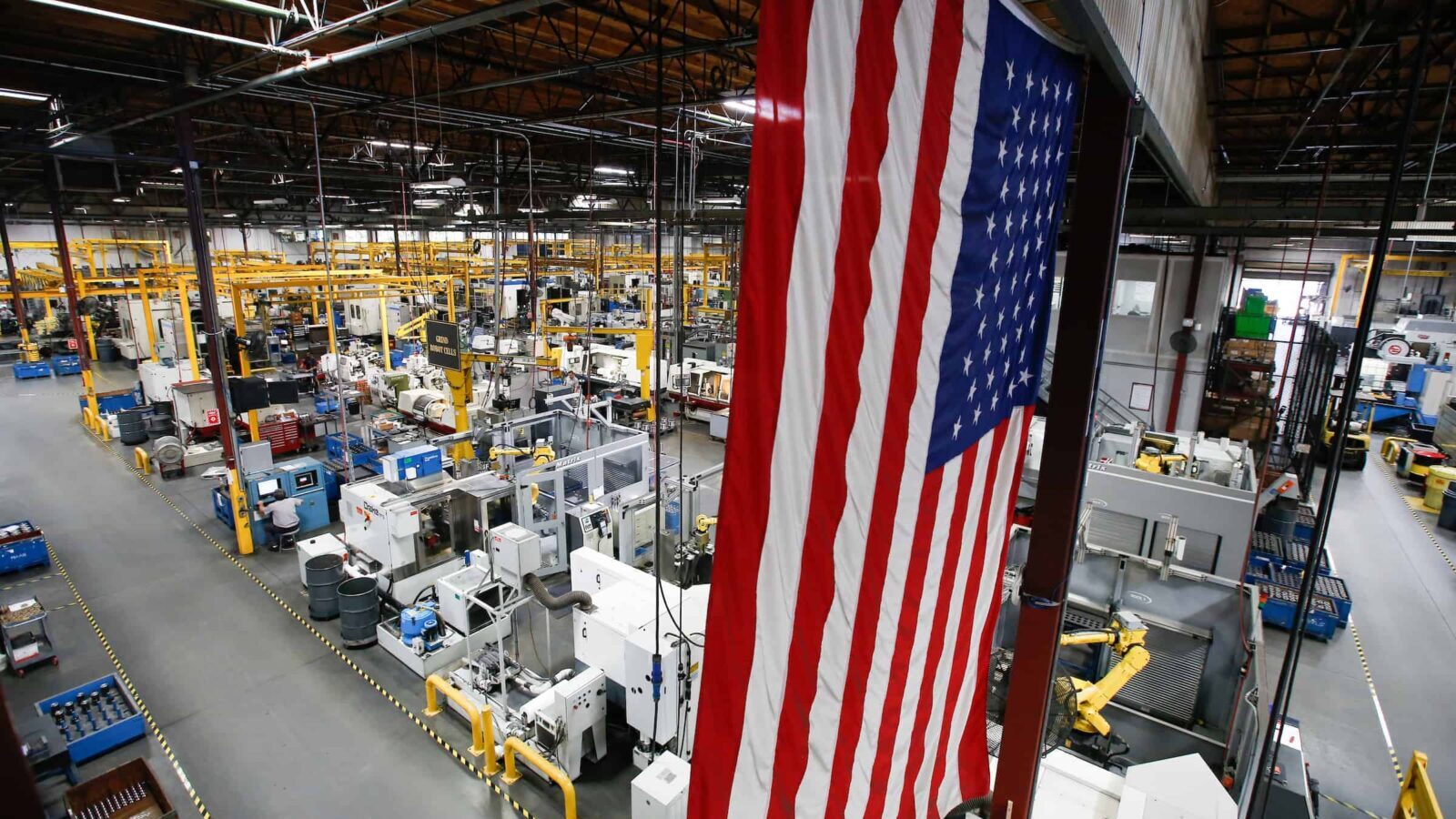
Manufacturing Institute Unveils Workforce Blueprint to Advance Executive Order Goals
Washington, D.C. (7/29/25) – In response to President Trump’s Executive Order 14278, which calls for a bold modernization of the federal workforce system and expansion of employer-led apprenticeship opportunities, the Manufacturing Institute, the 501(c)3 nonprofit workforce development and education affiliate of the National Association of Manufacturers, has released a set of critical policy priorities for workforce and apprenticeship reform.
The MI’s policy priorities reflect months of listening sessions and consultations with manufacturers across the country—small and large, urban and rural, across a range of sectors—who continue to face an expanding applicant and skills gap that threatens to slow innovation and economic progress.
“It’s more important than ever that we ensure manufacturers in the U.S. have the talent they need for today and tomorrow—talent that is prepared with the skills necessary to compete. The United States has long faced a structural workforce shortage, and we applaud the Trump administration for recognizing that the federal workforce development infrastructure needs to be streamlined and focused on supporting manufacturers’ and employers’ talent needs,” said MI President and Executive Director Carolyn Lee. “As President Trump works to strengthen and expand manufacturing in America, his executive order marked a pivotal step toward modernizing the nation’s workforce development and apprenticeship systems. These priorities will remain central to the MI’s ongoing work.”
According to a 2024 landmark study by the MI and Deloitte, the U.S. manufacturing sector will face 3.8 million job openings by 2033, with more than half potentially going unfilled without urgent reforms to talent development systems, signaling the need for immediate, effective action to improve workforce development opportunities.
To address this challenge, the MI recommends the following priorities for workforce and apprenticeship policy reform to guide efforts at the federal level. These priorities are intended to inform recommendations from the Departments of Labor, Education and Commerce to the White House.
Workforce Reform Priorities:
- Promote employer participation in program design and delivery to ensure training reflects real-time industry needs.
- Simplify and stabilize access to funding for employer-led training initiatives, particularly for small and medium-sized manufacturers.
- Expand support for incumbent worker training to help manufacturers invest in upskilling their current workforce and retaining talent.
- Create a progression of opportunities for students to learn about, explore and prepare for careers—from middle school through postsecondary—by integrating and sufficiently funding related activities.
- Prioritize the development and expansion of multiemployer partnership models, which offer a proven framework for meeting employer demand across regions.
- Recognize industry credentials with demonstrated workforce impact as valid training outcomes, supporting practical, nondegree-based career pathways.
Apprenticeship Reform Priorities:
- Support flexible work-based learning models, including apprenticeships by right-sizing the regulatory scheme and investing in program development and expansion.
- Incentivize employer-responsive organizations to serve as apprenticeship intermediaries to assist employers in launching and managing programs.
- Expand financial incentives for employers to create and operate apprenticeships.
- Develop a system to gather and publicize near real-time data on outcomes for participants and employers as a means of identifying and holding to account low-quality programs and promoting high-impact programs.
- Streamline the apprenticeship registration process and reporting requirements.
The MI’s policy priorities are grounded in real-world experience through the Federation for Advanced Manufacturing Education (FAME USA), a nationwide apprenticeship-style program led by the MI. In the past several years, FAME has become the new American model for manufacturing skills training. With nearly 500 employers participating across 46 locations in 16 states, FAME has graduated more than 2,100 students and boasts a 90% job placement rate. FAME graduates add to the pool of highly skilled technical talent across the U.S.
Lee added, “Manufacturers have invested billions in advanced technologies and domestic operations, but their greatest constraints remain access to skilled talent. Our policy priorities reflect what we’ve heard directly from employers: the current workforce development system in the U.S. is outdated and burdensome, and it must be realigned around what works—employer-led models like FAME, where training is connected directly to real-world needs.”
As the administration implements EO 14278, FAME offers a proven, scalable solution that aligns with national workforce priorities.
“The manufacturing industry is only as strong as the people who power it,” said NAM President and CEO and MI Chairman of the Board Jay Timmons. “This is not just about jobs—it’s about American competitiveness. President Trump’s executive order presents a vital opportunity. The MI’s policy priorities offer a clear, practical blueprint to make sure that America builds up and develops our workforce to meet the needs of manufacturers across an innovative, modern economy. If we get this right, we secure the future of manufacturing in America, and when manufacturing wins, America wins.”
The MI also hails the White House’s recently released AI Action Plan, which rightly recognizes the manufacturing workforce must have the necessary skills to leverage AI.
“As AI becomes a national priority, long-term success in manufacturing hinges on how well we prepare our workers to integrate it,” Lee continued. “But the success of any AI strategy depends on workforce readiness. Tools and tech can enhance production but only if the workers utilizing them are prepared to adapt, apply and lead with AI.”
– The Manufacturing Institute –
The Manufacturing Institute builds a resilient manufacturing workforce prepared for the challenges and opportunities of the future. Through implementing groundbreaking programs, convening industry leaders and conducting innovative research, the MI furthers individual opportunity, community prosperity and a more competitive manufacturing industry. As the 501(c)3 nonprofit workforce development and education affiliate of the National Association of Manufacturers, the MI is a trusted adviser to manufacturers, equipping them with solutions to address the toughest workforce issues. For more information on the MI, please visit www.themanufacturinginstitute.org.